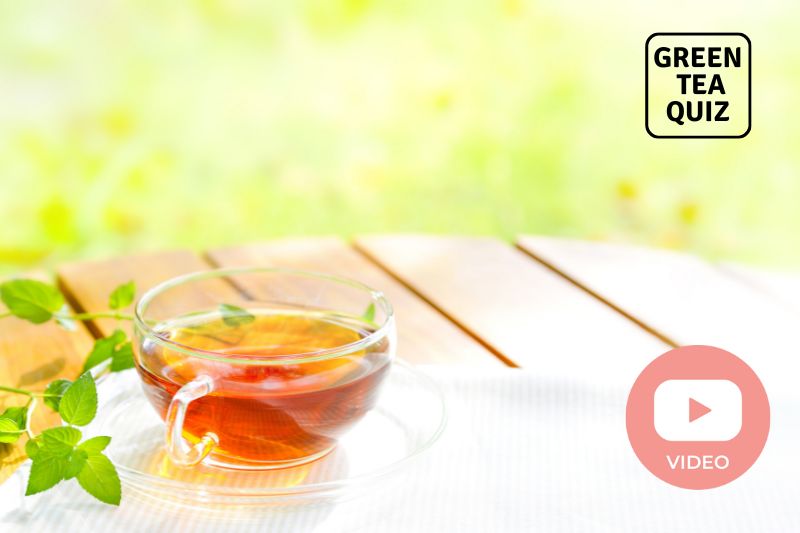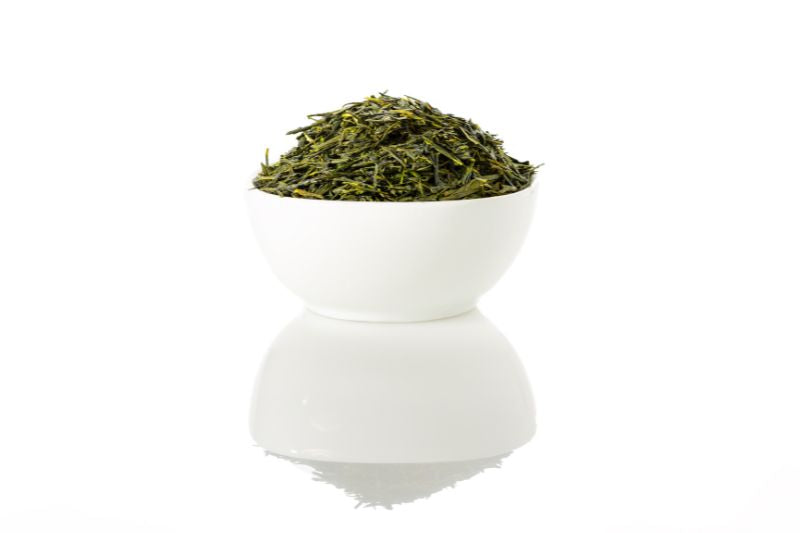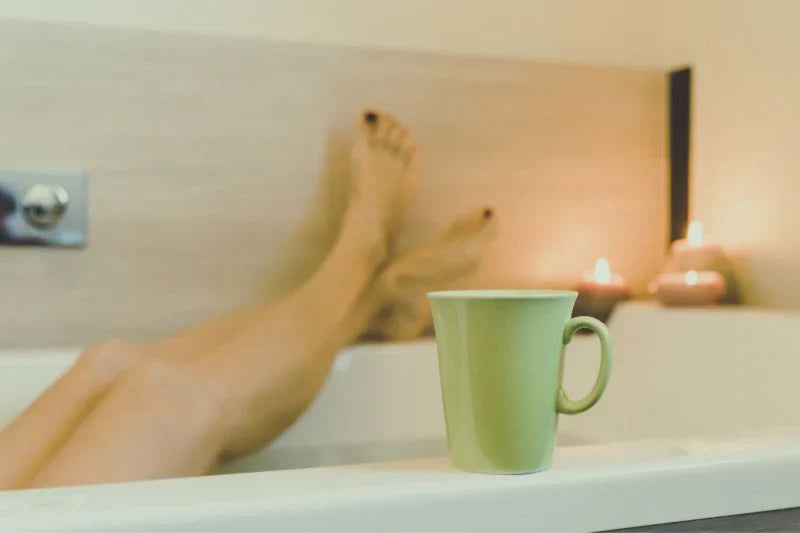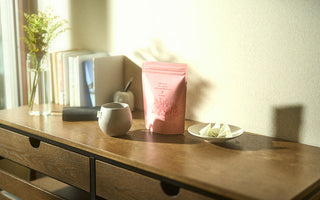Introduction: Does Tea Expire?
Many people wonder whether tea expires. Unlike fresh food, tea doesn’t spoil in a way that makes it unsafe to drink, but it does lose its freshness, aroma, and flavor over time. The shelf life of tea depends on its type and how it is stored. If you have tea sitting in your kitchen for a long time, don’t throw it away yet—there are still ways to use it!
How Long Does Tea Last?
The lifespan of tea depends on its type:
-
Green tea and white tea: Best used within 6-12 months for full flavor.
-
Black tea and oolong tea: Can last 1-2 years if stored properly.
-
Herbal teas: Stay fresh for about 1 year but may lose potency over time.
-
Pu-erh and aged teas: These types can improve with age when stored correctly.
Proper storage helps tea retain its quality for as long as possible.
For tea lovers, there is never enough tea, and it sometimes leads to a stockpile of tea in the pantry that is just around its expiration date. Teabags or loose tea can last around 6–12 months after the packaging date under normal conditions. Black tea and white tea, for example, have different shelf lives compared to green tea, with black tea staying fresh for up to 2-3 years due to its oxidation process, while white tea requires special care to preserve its delicate flavors. When storing a packed tea, you should look at different factors such as moisture, temperature, etc., and keep the tea packages tightly shut at normal temperatures away from any moisture.
It is recommended to use tea within a year because, after a specific time, it starts to lose its flavor and quality. Herbal tea typically expires within 6 to 12 months if the package is open and from one year to 18 months if the package is not opened. Tea leaves do not expire or deteriorate after a year; they only lose flavor after a set date. You can say the expiration date is only a marker for the quality duration. The out-of-date tea is safe to consume, will need longer steeping time to get all the flavors out, and is usually good for other reasons around the house.
In Asia, many people drink tea that is years old and considered expensive. However, the same cannot be said about other tea types, as some lose taste and some get infected by insects. Tea leaves are just like dried herbs that you use for various purposes, and the same stock can be used for years. Properly storing loose leaf tea in airtight containers and keeping it away from heat, light, and air is crucial to maintaining its freshness.
As said, tea does not usually expire, but the tea bags that it comes in expire after a particular time. It is better to have loose leaves in an airtight container, but if you still have tea bag stock that you do not want to leave to waste, you can use it for various purposes. To store tea properly, use opaque containers and keep them in a cool, dark place away from sunlight and moisture. Maintaining a tea collection requires proper storage techniques to preserve the flavor and freshness of various types of teas over time. Green tea leaves are not only good for your body but also help in keeping the skin clean, the home clean and free of bad smells, composting waste, bringing color to old wood furniture, increasing acidity in the soil for plants, and deterring pests.
Following are the few best uses of out-of-date tea stock present in your home. You will know that tea never goes to waste because it has several benefits and qualities that you can use in your daily routine.

Hydrate skin
Green tea has several antioxidants that are good for your skin. Either re-brew used tea bags or out-of-stock ones. Pour the cooled-down tea into a spray bottle and spritz it onto your skin, or dab it with a cotton pad. It works as a cooling and hydrating agent for your skin cells and also makes them healthy. Green tea bags are also useful for getting rid of puffy eyes and dark circles. The caffeine works to lessen the swelling and make your skin look more refreshed. Additionally, drink green tea to enhance overall skin health.
Puffy eyes and dark circles can be caused by a lack of sleep, stress, a bad diet, etc., and you can easily cure them with tea bags. Brew a cup of tea in warm water and put the used tea bag in the fridge. Let it cool and squeeze the excess amount of water. Put these tea bags under your eyes and dab them occasionally for 15 minutes. If you like to use it for a longer time, dip it in tea to get the nutrients and apply it again. It is a quick and effective remedy for curing such issues. Also, you can put it on your eyes while doing a facial.
While doing at-home facial steam before skin treatment, put a couple of tea bags in the bowl of hot water. Hover your face over the bowl and let it feel the green tea steam. Let it sit like this for 5–10 minutes, enjoy the steam of antioxidants, clean, hydrate, and tone your skin, and open your pores.
Cure sunburn and rashes
If you spend excessive time outside, then sunburn is inevitable, regardless of your skin type. Teabags are a great remedy for treating burnt skin, as they help soothe the skin and reduce inflammation, making it heal faster. Tea leaves also give relief to minor rashes and bug bites. Put a cold and damp tea bag on your affected skin, and it will bring relief to the skin and prevent itching.
Good for hair
You can use green tea leaves to add shine and smoothness to your hair. Take a few tea bags and brew a strong tea. Let the brewed tea cool down completely, and then put it in a spray bottle. Apply it to your hair before showering. Thoroughly soak your hair with the tea, leave it wet for at least 30 minutes, and then take a shower. Wash your hair in the shower like usual with shampoo and conditioner. For better results, use it once a week, and you will see a visible change in your hair, as it will start to look healthy, shiny, and smooth.

Super composite agent
Brewed tea and eco-friendly tea bags help decompose the waste. Packs can only be composited if made from paper or muslin, as they are decomposable. If you compost waste at home, then make sure to put tea bags in a pile to make it decompose faster. Moist tea leaves speed up the process and even help with pests and fungal problems. Either make brewed tea or simply lay out tea leaves in a heap; either way, it will attract bacteria, which will make the process go faster.
Deter pests with expired tea
Different kinds of tea help deter pests from any place in the house. Spearmint tea repels moths and ants; peppermint is a good repellent for rats, fleas, and beetles; and overall, mint teas work best in any situation. For it to work, throw some dried tea leaves in the areas infected with pests or put tea bags in the hidden corners to prevent rats from coming. Peppermint irritates the nasal cavity of rats, which makes them run away. For a more effective way, use a few drops of essential oil on tea bags to increase the effect.
Increase soil acidity
Tea leaves contribute to soil acidity by containing adequate amounts of caffeine and catechins. Plants like radish, sweet potatoes, azalea, and pepper thrive and grow well in acidic soil. Put old tea leaves or tea bags as fertilizer in the topsoil and water the plants. Acidity and nutrients in a single bag will last for a maximum of a week; after that, it replaces another. It may not be the same for all the plants, as some varieties do not need acidic soil.
Out-of-stock or old tea leaves are also suitable for protecting plants from pests and fungal infections. Either you have pot varieties, patio varieties, or garden varieties of food that you can use in any of them. Make brewed tea and sprinkle it on the plants, especially at the roots, as a natural pesticide to prevent the damage caused by insects and fungus.

Useful for polishing old wood with tea leaves
Old tea can also be used to bring shine to old wood furniture or frames. Make a light tea with old tea or used tea bags for this purpose. Pour the tea over the wood and bring it to life as it shines it up and makes it look new. Teabags can also be used to stain wood, polish furniture, and clean hardwood floors.
Remove odor from shoes and feet
Teabags are great for fighting foul odors from shoes and feet. Shoes quickly develop a terrible smell and bacteria in hot weather, which they have a hard time getting rid of. Use old or used tea bags or leaves in the shoes and let them sit there for a few hours or overnight. It absorbs moisture and smells from the shoes and makes them wearable every day. As for foot smell, make a green tea bath for your smelly and fungus-infected feet. Use at least five tea bags for a one-foot bath. Steep them in boiling water and let it cool. Soak your feet for about 20 minutes, and then dry them immediately. It helps you feel relaxed, kills bacteria, smooths cracked heels, and eliminates foul odor.
Air refresher
Tea leaves are great absorbents despite their expiration date and can be used anywhere in the home to prevent bad odors. Tight spaces especially develop a stuffy smell due to a lack of ventilation or other reasons. You can place tea bags or tea leaves in the fridge to remove any odor. Keep tea bags somewhere in your bathroom to fight odor, and especially spiced tea bags will fill the small space with a natural aroma. Moreover, use it as a natural air freshener by putting it in kitty litter, kitchen bins, gym bags, or any place that develops a bad odor.
Carpet cleaner
Use out-of-stock tea for cleaning and fighting germs in your carpets. Take dried-out tea leaves and mix them with baking soda and water. Sprinkle the mixture on your carpets and let it soak a bit. Either spray it over smelly or dirty spots or generally all over to freshen up the carpet after 20 or more mutes, use a vacuum cleaner, and thoroughly clean your carpet. The mixture absorbs the foul smell and traps dirt within itself, leaving you with a nice and clean carpet.
Creative Uses for Expired Tea
If your tea is too old to drink, don’t throw it away! Here are some creative ways to use expired tea:
🌿 Compost – Old tea leaves make great fertilizer for plants.
💆 Skincare – Use tea as a natural facial toner or add it to a bath for a relaxing soak.
🧼 Cleaning – Brew weak tea to clean mirrors and glass surfaces.
🌬 Odor Absorber – Place dried tea leaves in shoes or the fridge to absorb odors.
Conclusion: When to Toss vs. Reuse?
If your tea has lost its flavor but is not moldy or damp, you can still use it for skincare, composting, or cleaning. However, if it smells bad, has mold, or tastes off, it’s best to throw it away. Storing tea properly ensures you get the best flavor and benefits for as long as possible.
Get Free Bonus Books

Sign up for free to the Green Tea Club to get advice and exclusive articles about how to choose Japanese Tea, and tips, tricks, and recipes for enjoying Japanese tea.
About the author
Kei Nishida
Author, CEO Dream of Japan
Certification: PMP, BS in Computer Science
Education: Western Washington University
Kei Nishida is a passionate Japanese green tea connoisseur, writer, and the founder and CEO of Japanese Green Tea Co., a Dream of Japan Company.
Driven by a deep desire to share the rich flavors of his homeland, he established the only company that sources premium tea grown in nutrient-rich sugarcane soil—earning multiple Global Tea Champion awards.
Expanding his mission of introducing Japan’s finest to the world, Kei pioneered the launch of the first-ever Sumiyaki charcoal-roasted coffee through Japanese Coffee Co. He also brought the artistry of traditional Japanese craftsmanship to the global market by making katana-style handmade knives—crafted by a renowned katana maker—available outside Japan for the first time through Japanese Knife Co.
Kei’s journey continues as he uncovers and shares Japan’s hidden treasures with the world.
Learn more about Kei








